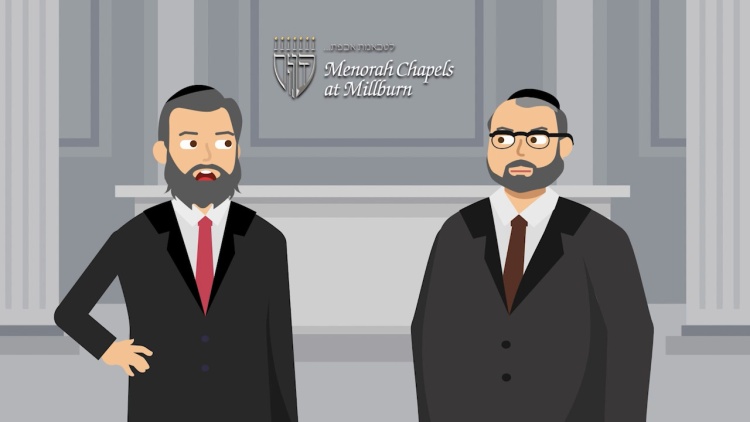Menorah Chapels at Millburn v. Needle
New Jersey Superior Court, Appellate Division
899 A.2d 316 (2006)

- Written by Josh Lee, JD
Facts
Emanuel Needle (defendant) had a father-in-law who was an orthodox Jew. The father-in-law died on a Friday, and Needle contracted with Menorah Chapels of Millburn (Menorah Chapels) (plaintiff) to conduct the funeral and related services. Menorah Chapels advertised itself as a Jewish Funeral Chapel that could provide the services customary in the orthodox Jewish faith. One of these services was providing a watcher, known as a shomerim, to conduct a continuous vigil over the deceased’s body until the funeral. The contract between Needle and Menorah Chapels reflected that Menorah Chapels agreed to provide a shomerim for Needle’s father-in-law through the Sabbath. However, this did not occur, and the father-in-law was unattended during the Sabbath. Needle did not pay Menorah Chapels for the services, and Menorah Chapels sued Needle for breach of contract. Menorah Chapels sought full payment for the services, less the amount for the shifts of the shomerim during the Sabbath that were not provided. Needle filed a counterclaim, alleging breach of contract. Menorah Chapels filed a motion for summary judgment regarding Needle’s counterclaim. The trial court granted the summary-judgment motion of Menorah Chapels and granted judgment on the primary breach-of-contract claim to Menorah Chapels as well. Needle appealed to the New Jersey Superior Court.
Rule of Law
Issue
Holding and Reasoning (Payne, J.)
What to do next…
Here's why 907,000 law students have relied on our case briefs:
- Written by law professors and practitioners, not other law students. 47,100 briefs, keyed to 996 casebooks. Top-notch customer support.
- The right amount of information, includes the facts, issues, rule of law, holding and reasoning, and any concurrences and dissents.
- Access in your classes, works on your mobile and tablet. Massive library of related video lessons and high quality multiple-choice questions.
- Easy to use, uniform format for every case brief. Written in plain English, not in legalese. Our briefs summarize and simplify; they don’t just repeat the court’s language.





